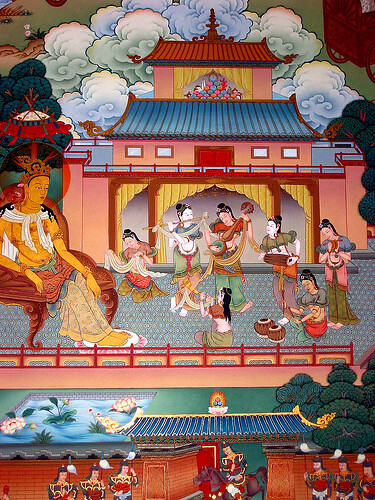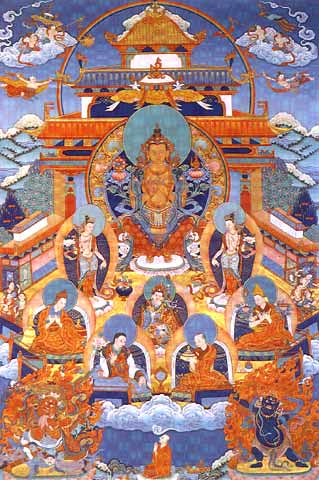Please read a more current post about this here
The Jain concept of Sansaar refers to the world around us.
Our: –
Clothes
Home
Family
Work
Possessions etc.
Jainism teaches that through countless cycles of birth and death we have had all this before and yet we don’t experience permanent happiness.
A thought – do these things bring us ‘real’ happiness?
This was discussed at an event held by the Young Jains UK on Sunday 17th August 2008 –
Samsara Bhavna – No permanent relationship in universe
Under this reflection, one thinks that the soul transmigrates from one life to the other and takes a birth in a human, animal, hellish, or heavenly body. The continual cycle of birth, life, and death is full of pain and miseries. He has not yet ended this cycle. There are no permanent worldly relations like father, mother, friend, and foe. It is we who establish these relations and live accordingly.
This kind of thought will help minimize or stop any attachments to other living beings, or objects. The soul must achieve ultimate freedom from it, which is liberation or Moksha.
Thinking of worldly life.
In the cycle a of different worldly lives (samsar) the mother can become a wife; a wife can become a mother; and an enemy can become a friend; and a friend can become a foe, etc. How fruitless is this samsar, where relationships go on changing. Therefore, I should not develop bondage for others.
~~~~~~~~~~~~~~
This concept is part of the 12 Bhavnas (Reflections or Thoughts). Some people believe that there are 16 Bhavnas. The following explains what the Bhavnas are. (Taken from http://www.fas.harvard.edu/~pluralsm/affiliates/jainism/jainedu/12bhavna.htm)
Jain religion puts a significant emphasis on the thought process of a human being. A person’s behavior and his actions are the reflection of his internal thoughts, day in and day out. It is not the action but intention behind the action results in the accumulation of Karma. Hence, one should be very careful about his thoughts, how he thinks, and the subject matter of his thought.
To make room for pure thoughts, and to drive out the evil ones, Jainism recommends to reflect or meditate the following twelve thoughts or Bhavnas.
The twelve Bhavnas described here are the subject matters of one’s meditation, and how to occupy one’s mind with useful, religious, beneficial, peaceful, harmless, spiritually advancing, karma preventing thoughts. They cover a wide field of teachings of Jainism. They are designed to serve as aids to spiritual progress, produce detachment, and lead the aspirants from the realm of desire to the path of renunciation. They are reflections upon the fundamental facts of life, intended to develop purity of thought and sincerity in the practice of religion.
The reflections are also called Anuprekshas, longings, thoughts, aspirations, or Bhavnas.
Pravin K. Shah
Jain Study Center of North Carolina
Giotto – Legend of St Francis – -05- – Renunciation of Wordly Goods

Pleasures in the court of Prince Siddhartha

Worldly life



An illustration of the cycle of life and death
